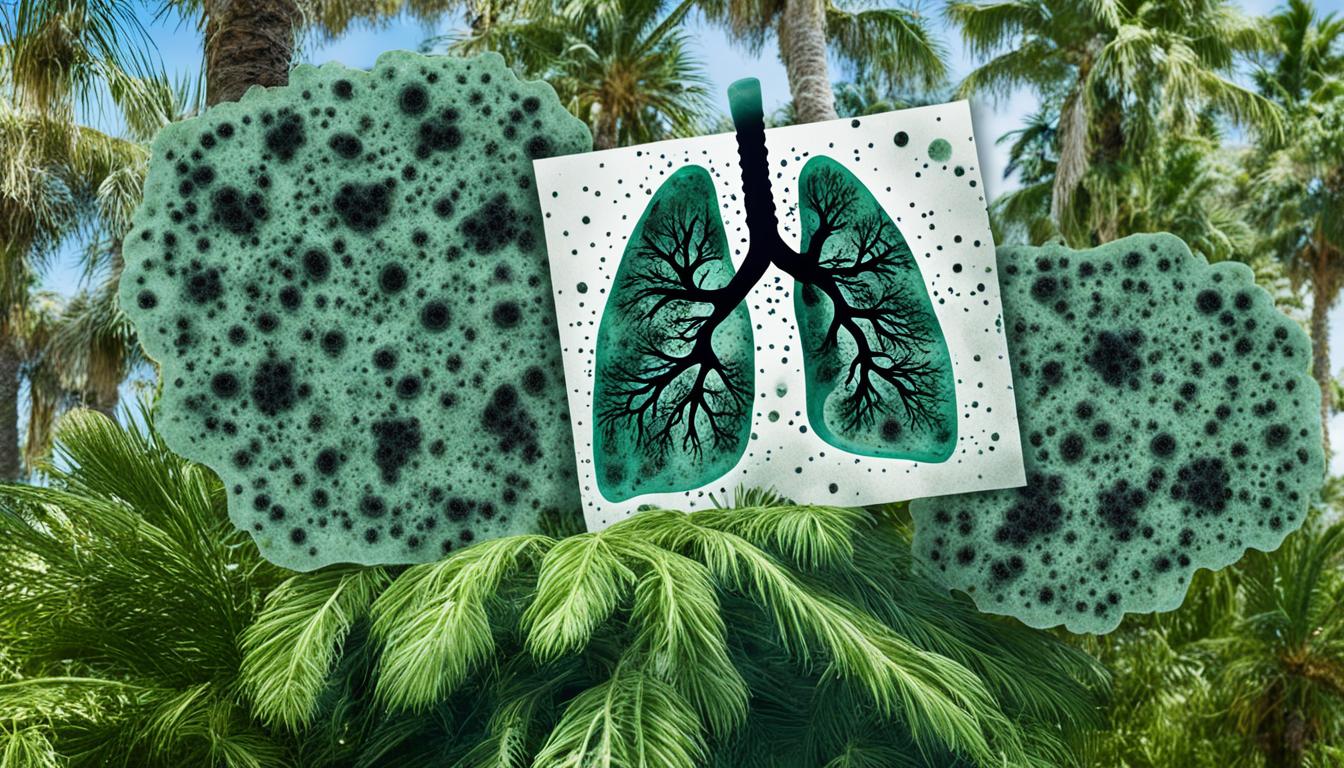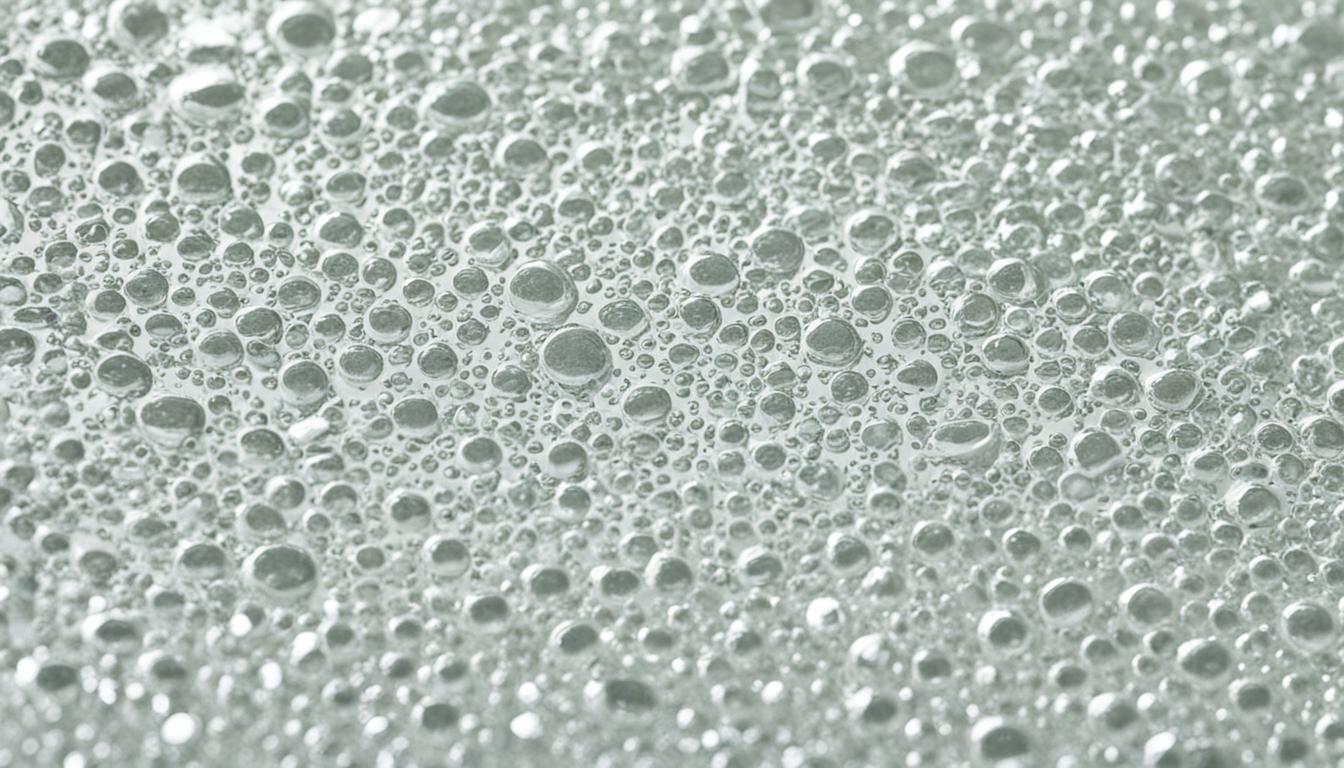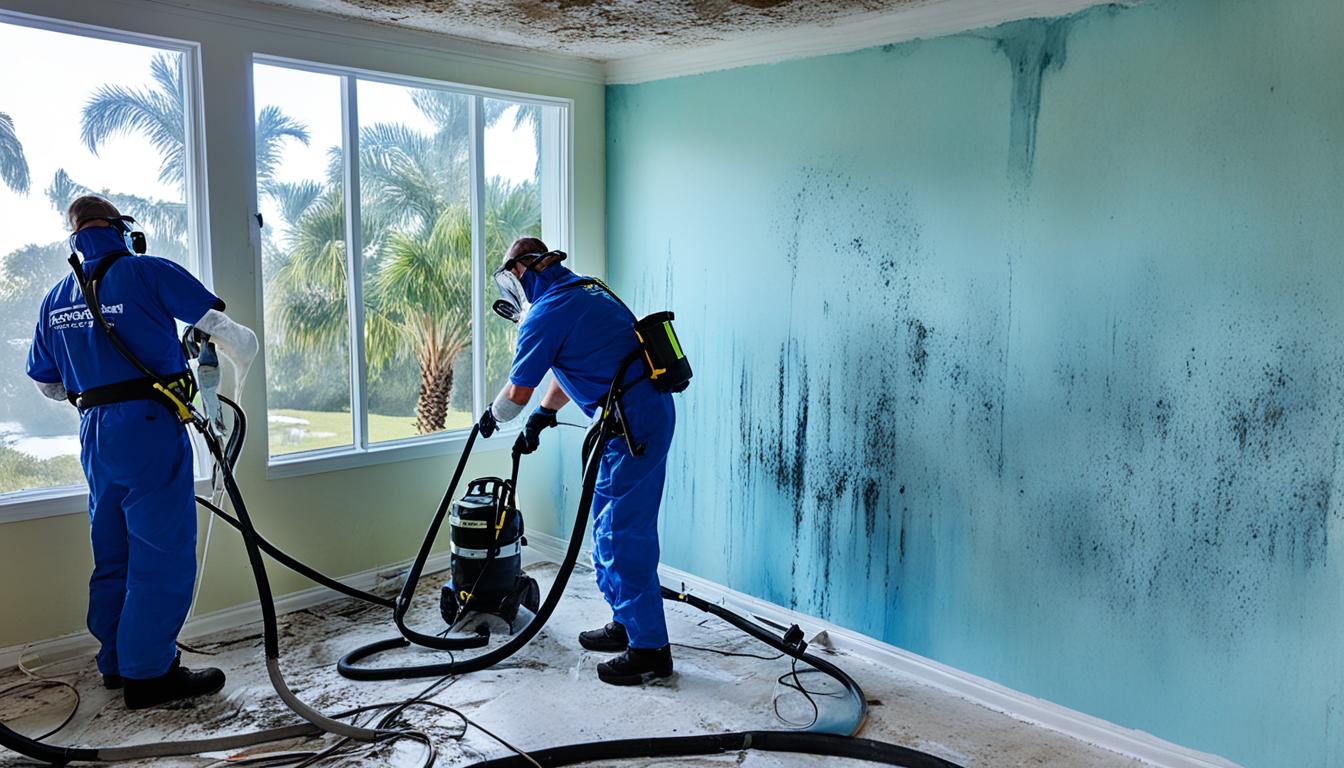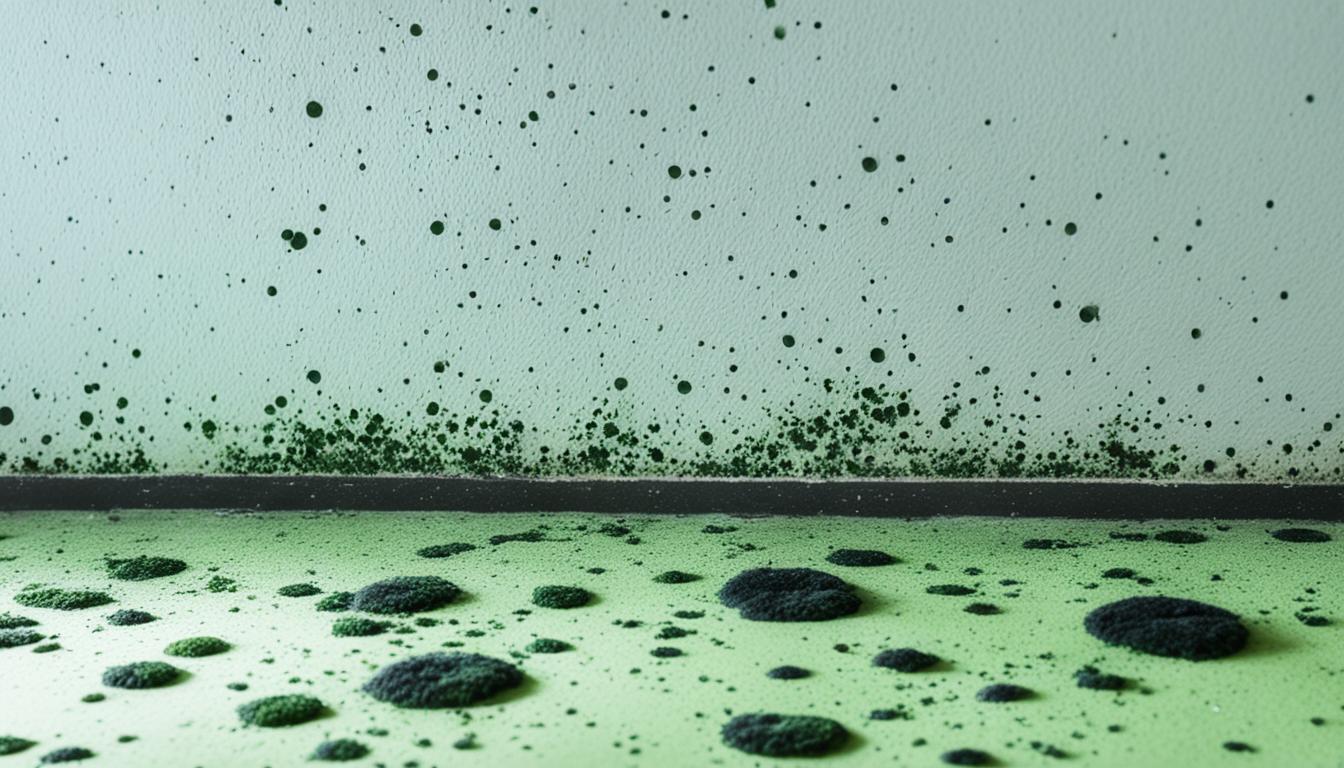
Mold Spores Florida: Risks & Prevention Tips
Mold Spores Florida: Risks & Prevention Tips
Understanding mold spores in Florida is crucial for protecting your health and maintaining a safe indoor environment. Mold spores, tiny particles produced by mold, can be found both indoors and outdoors. However, in the humid climate of Florida, the risk of mold growth and spore dispersion is significantly higher.
Mold spores are microscopic, lightweight structures that can travel through the air. When they land on damp surfaces, they can start to grow and multiply, leading to mold infestations. This can not only damage your property but also pose health risks to you and your family.
The presence of mold spores can cause various health issues, particularly for individuals with respiratory conditions and weakened immune systems. Exposure to mold spores can trigger allergies, asthma attacks, and respiratory infections. Therefore, it is essential to take proactive measures to prevent and minimize mold spores in your Florida home.
Did you know? According to the Florida Department of Health, mold exposure can exacerbate symptoms of existing respiratory conditions such as asthma, and individuals with weakened immune systems, the elderly, and children are most susceptible to its harmful effects.
To effectively prevent mold spores in your Florida home, here are some important tips:
- Ensure proper ventilation to reduce humidity levels. Use exhaust fans in bathrooms and kitchens, and open windows whenever possible.
- Keep indoor humidity levels below 50% by using dehumidifiers or air conditioners.
- Repair any water leaks or moisture issues promptly to prevent mold growth.
- Clean and dry any water-damaged areas within 24 to 48 hours.
- Regularly inspect your home for signs of mold, such as musty odors or visible discoloration on walls, ceilings, or surfaces.
- Use mold-resistant products and materials when renovating or building.
By implementing these prevention strategies, you can minimize the risk of mold spores in your Florida home, protecting the health and well-being of your loved ones.
Increased Risk During Hurricane Season
Florida’s hurricane season, which typically lasts from June to November, can further exacerbate the risks associated with mold spores. Heavy rainfall, flooding, and property damage can create favorable conditions for mold growth and spore dispersion.
If your home has been affected by a hurricane or severe weather, it is crucial to take immediate action to dry and clean the affected areas. Promptly removing water-damaged materials and thoroughly drying the space can help prevent mold growth and minimize the presence of mold spores.
Remember, understanding mold spores and implementing preventive measures is essential for maintaining a healthy living environment in Florida. Stay vigilant, monitor humidity levels, and address moisture issues promptly to keep mold spores at bay.
Health Risks of Mold Spores in Florida
Exposure to mold spores in Florida can pose significant health risks. The warm and humid climate of the state provides an ideal environment for mold growth, leading to increased mold spore presence indoors and outdoors.
When mold spores are inhaled or come into contact with the skin, they can trigger various health issues. The most common symptoms associated with mold spore exposure include:
- Respiratory Issues: Mold spores can irritate the respiratory system, leading to coughing, wheezing, and shortness of breath.
- Allergies: Individuals with allergies may experience heightened allergic reactions when exposed to mold spores, resulting in itchy eyes, a runny nose, sneezing, and skin irritation.
- Asthma Attacks: Mold spore exposure can trigger asthma attacks in individuals with asthma or a history of respiratory conditions.
- Headaches and Fatigue: Prolonged exposure to mold spores may cause persistent headaches and fatigue.
- Immune System Complications: Certain mold species produce mycotoxins, which can weaken the immune system, potentially leading to infections and other health complications.
To protect your health and the well-being of your family, it is vital to address mold spores promptly. Early detection and prevention measures can minimize the risk of health problems associated with mold spores in Florida.
Remember, if you suspect mold growth or are experiencing symptoms related to mold exposure, it is crucial to consult with a qualified professional for proper assessment and remediation.
Next, we will discuss prevention strategies to help you combat mold spores in your Florida home and create a safe and healthy living environment.

| Health Risks of Mold Spores in Florida | |
|---|---|
| Respiratory Issues | Coughing, wheezing, shortness of breath |
| Allergies | Itchy eyes, runny nose, sneezing, skin irritation |
| Asthma Attacks | Triggering asthma attacks |
| Headaches and Fatigue | Persistent headaches, fatigue |
| Immune System Complications | Weakened immune system, increased risk of infections |
Prevention Strategies for Mold Spores in Florida
To ensure a mold-free environment in your Florida home, it is essential to implement effective prevention strategies. By following these tips, you can minimize the presence of mold spores and protect the health of your family:
1. Control Moisture:
Mold thrives in areas with excessive moisture, so it’s crucial to keep your home dry. Regularly inspect and fix any leaks or water damage, ensuring proper drainage and ventilation in high-humidity areas like bathrooms and kitchens.
2. Improve Ventilation:
Proper airflow helps prevent the accumulation of moisture and reduces the chances of mold growth. Use exhaust fans in bathrooms and kitchens, open windows when weather permits, and consider installing dehumidifiers in areas prone to excess moisture.
3. Conduct Regular Inspections:
Regularly inspect your home for signs of mold growth, such as musty odors, visible mold, or discoloration on walls, ceilings, or surfaces. Promptly address any issues to prevent the spread of mold spores.
4. Maintain Indoor Humidity Levels:
Keep indoor humidity levels below 60% to discourage mold growth. Use a hygrometer to monitor humidity levels, and if necessary, use air conditioning or a dehumidifier to maintain optimal levels.
5. Clean and Dry Spills or Water Damage:
Accidents happen, but it’s important to clean up spills or water damage promptly. Thoroughly dry affected areas within 48 hours to prevent mold spores from settling and growing.
6. Use Mold-Resistant Building Materials:
When renovating or constructing your home, consider using mold-resistant materials, such as mold-resistant drywall or paint. These materials can help inhibit the growth of mold spores and reduce the risk of infestation.
By implementing these prevention strategies, you can significantly reduce the risk of mold spores in your Florida home. Remember, early detection and proactive measures are vital to maintaining a healthy living environment for you and your loved ones.
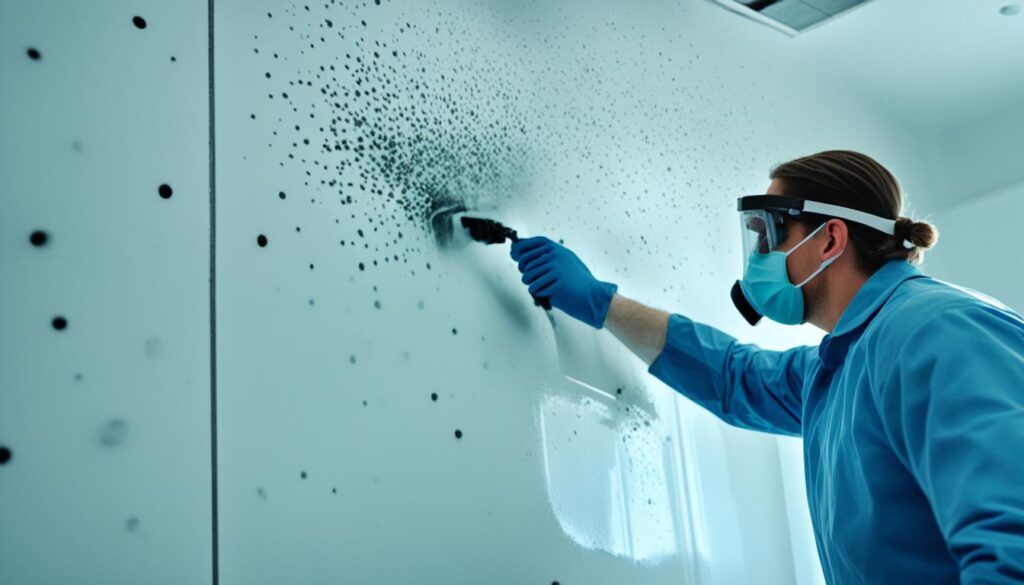
Mold Spores Florida: Final Thoughts and Action Steps
After exploring the risks and prevention strategies of mold spores in Florida, it is crucial to understand the significance of addressing this issue promptly. Mold spores can be found everywhere in Florida due to the warm and humid climate, making it essential to take proactive measures for a mold-free living environment.
First and foremost, early detection is key. Regular inspections of your home, especially areas prone to moisture such as bathrooms and basements, can help identify any signs of mold growth or spore presence. If you notice musty odors, discoloration on walls or ceilings, or experience unexplained health symptoms, consider reaching out to a professional mold inspector.
Once detected, it is important to take immediate action to prevent further mold spore dissemination. Ensure that any sources of moisture, such as leaks or condensation, are addressed promptly. Proper ventilation is also crucial, as it helps to reduce humidity levels and create an unfavorable environment for mold growth. Additionally, maintaining a clean and dry living space by regularly cleaning and drying areas prone to moisture can help reduce the risk of mold spores settling and multiplying.
In conclusion, it is vital to prioritize the prevention and control of mold spores in your Florida home. By implementing early detection techniques and taking appropriate actions, you can safeguard your health and maintain a mold-free living environment. Remember, a proactive and diligent approach is key to combating mold spores and ensuring the well-being of you and your loved ones.


